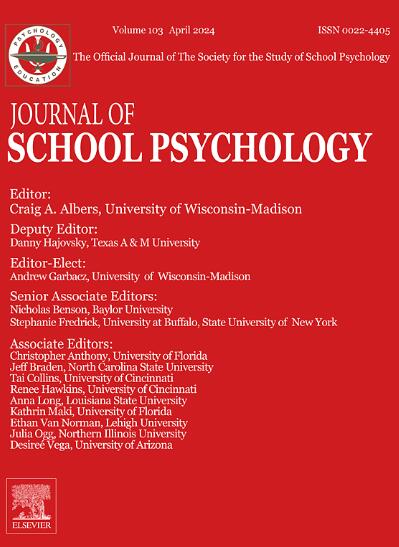Racial stereotype and Black adolescents' math achievement: Unpacking the socio-cognitive mechanisms
Abstract
Racial stereotypes are salient to Black adolescents and to the academic domain of mathematics; however, few studies have examined the socio-cognitive mechanisms through which racial stereotypes impact math achievement. This 2-year longitudinal study (N = 790 Grade 6, 8, and 10 students during Year 1; 50.7% girls and 49.3% boys) investigated (a) the extent to which the endorsement of positively and negatively biased racial stereotypes predicted Black adolescents' math performance through their cognitive engagement and ability mindset and (b) whether gender and ethnic-racial identity moderated these links. Results suggested that endorsement of negatively biased stereotypes was associated with diminished cognitive engagement and lower math scores across 2 years (p < .05). Additionally, adolescents' ethnic-racial identity commitment moderated the negative links between stereotype endorsement and math cognitive engagement in Year 2 (p < .05). When considering the mediating role of math ability mindsets, the endorsement of both positively and negatively biased racial stereotypes operated on math performance via its links to stronger fixed ability mindset beliefs in both years (p < .05). Gender also moderated the effects of racial stereotype endorsement on math mindset beliefs in Year 1 (p < .01). This study's findings advance the field's understanding of the psychosocial mechanisms through which racial stereotypes operate, thus enabling educators to develop tailored practices that facilitate equitable access to math learning opportunities.

 求助内容:
求助内容: 应助结果提醒方式:
应助结果提醒方式:


